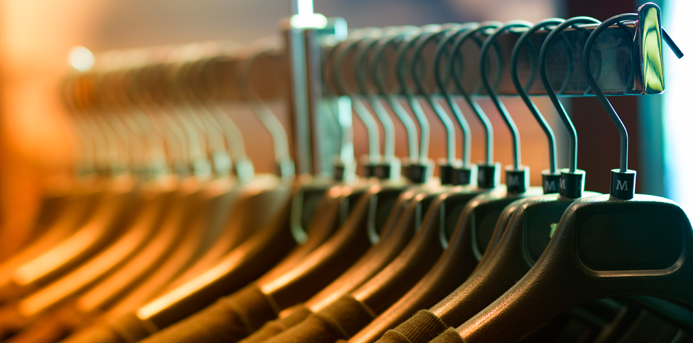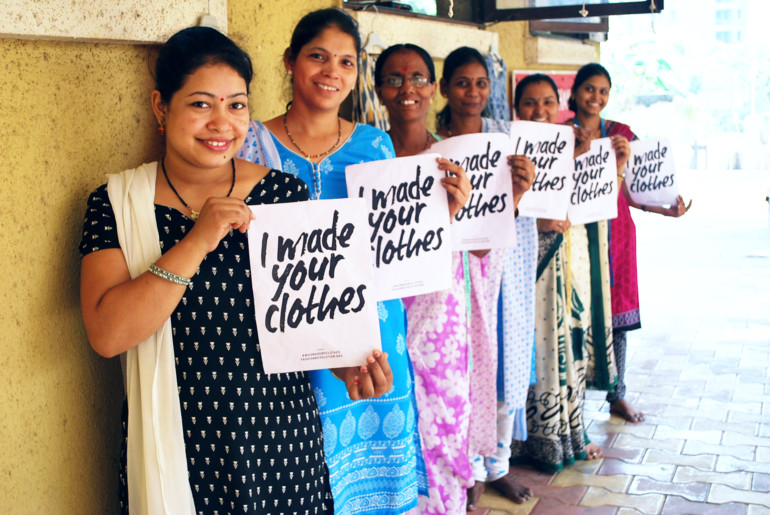What I find most interesting about the current pandemic is its ability to convey how our actions ripple even to those we may never meet. Models and graphics presented in the media effectively illustrate this ripple effect as one person’s actions and interactions move like a wave through society. This is particularly compelling as we approach April 24, the seventh anniversary of the 2013 Rana Plaza Factory collapse that killed 1,135 garment workers and injured an additional 2,500. Children’s Place, J.C. Penny, and Walmart, among other brands, all produced clothes in the Rana Plaza Factory, so the stories of the dead and injured workers are one ripple from our clothing purchases.

Our collective desire for cheap clothes continues to contribute to poverty-level wages for garment workers in countries like Bangladesh. The State of Fashion 2019 report indicates that “the average consumer buys 60 percent more clothing than 15 years ago.” This is possible because clothing prices have “never been lower,” due in large part to an industry notorious for poor working conditions both in the U.S. and abroad. Globally, only 2% of garment workers earn a living wage and the fashion industry is second only to tech in including forced labor. Stories of underage labor in the garment industry abound, and some former child garment workers have shared their stories with a global audience.
To be sure, jobs in garment factories are often touted as a poverty exit route and one of the few employment opportunities for women in some countries. But these arguments are even more cause for safe working conditions and fair wages.
Indeed, apparel purchases can have a positive ripple, providing stable living-wage jobs, empowerment, and resources for investing in education for their families. Chicago is home to some exemplary ethical apparel retailers and wholesalers. Mata Traders trains and employs “hundreds of artisans in marginalized communities” to produce their apparel and jewelry lines and their social mission focuses on “gender equality and empowering women.” Work + Shelter employs Indian women in need to “make it easy for organizations to purchase wholesale quantities of high quality, ethically make, customized sewn goods” with low impact raw materials.
To learn more about ethical apparel companies and some of the changes for the better that have occurred since the Rana Plaza Factory collapse, join us to hear Elizabeth Cline, bestselling author of Overdressed and The Conscious Closet. She’ll be sharing her expertise with us virtually on Zoom at DePaul University’s Fashion Revolution Reimagined event while she shelters in place in New York City. Following Elizabeth Cline’s presentation, we’ll have a virtual fashion show that will include students modeling ethical and sustainable apparel and some ethical and sustainable clothing that you can purchase here in Chicago. Register to join us virtually from 2-3:30 pm on April 24 via go.depaul.edu/fairtrade.
If you can’t join us on Zoom, you will be able to view the recorded presentation to learn more and find ways to support businesses that align with your values. Join communities of faith, the DePaul University community, and consumers throughout the world changing their purchasing to make their ripple from clothing purchases more beneficial all those involved with living wage salaries, transparent supply chains, and clearly implemented safety measures.
While concern for the most vulnerable has most recently manifested as social distancing to protect vulnerable populations from coronavirus, this may also provide a time for reflection on how connected we are globally. Keep calm and consume consciously. Think about the ripple effects of your actions and purchases, especially in this time of pandemic.
 Dr. Christie Klimas is an Associate Professor of Environmental Science & Studies at DePaul University who does research on the environmental and social impact of purchases and is a Public Voices Fellow with the OpEd Project.
Dr. Christie Klimas is an Associate Professor of Environmental Science & Studies at DePaul University who does research on the environmental and social impact of purchases and is a Public Voices Fellow with the OpEd Project.

